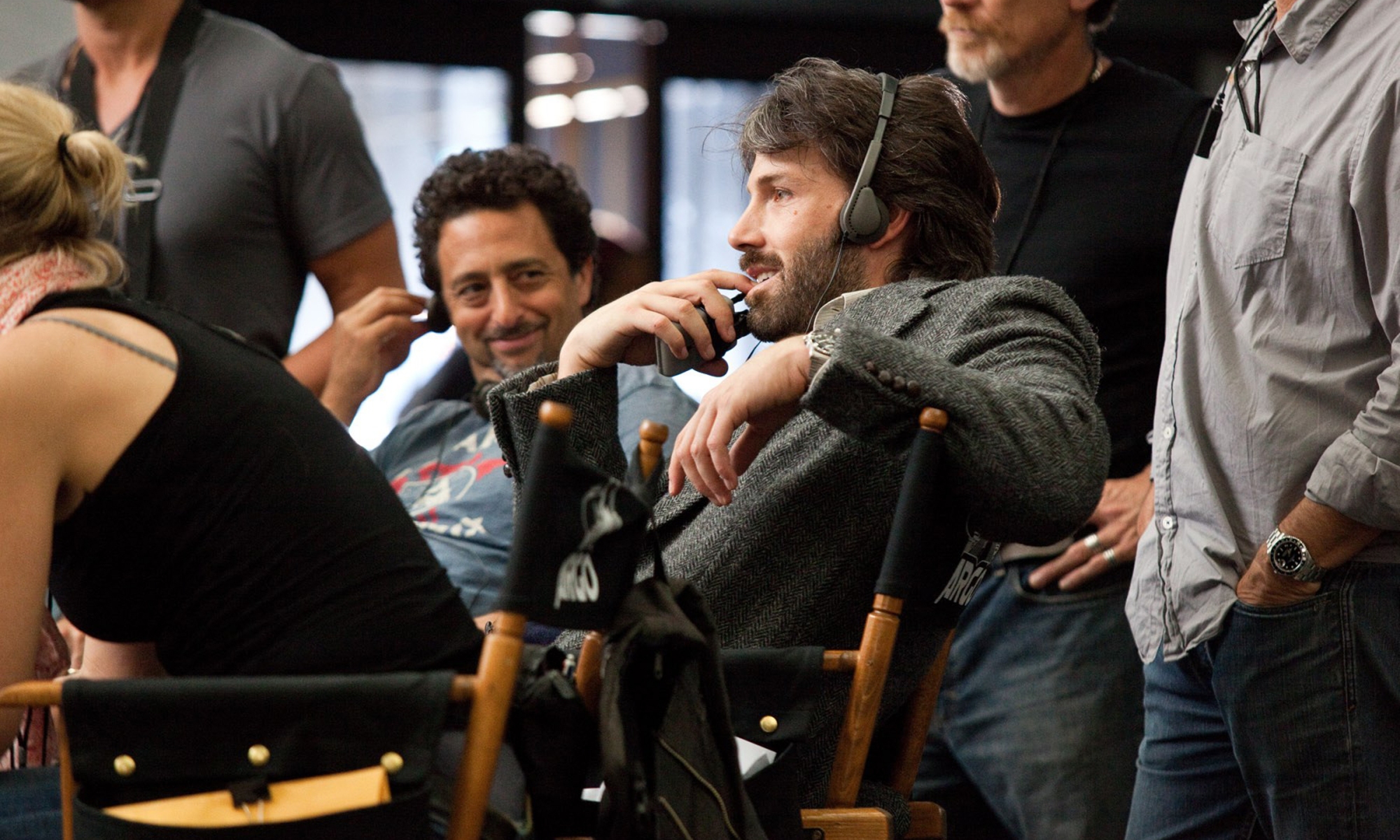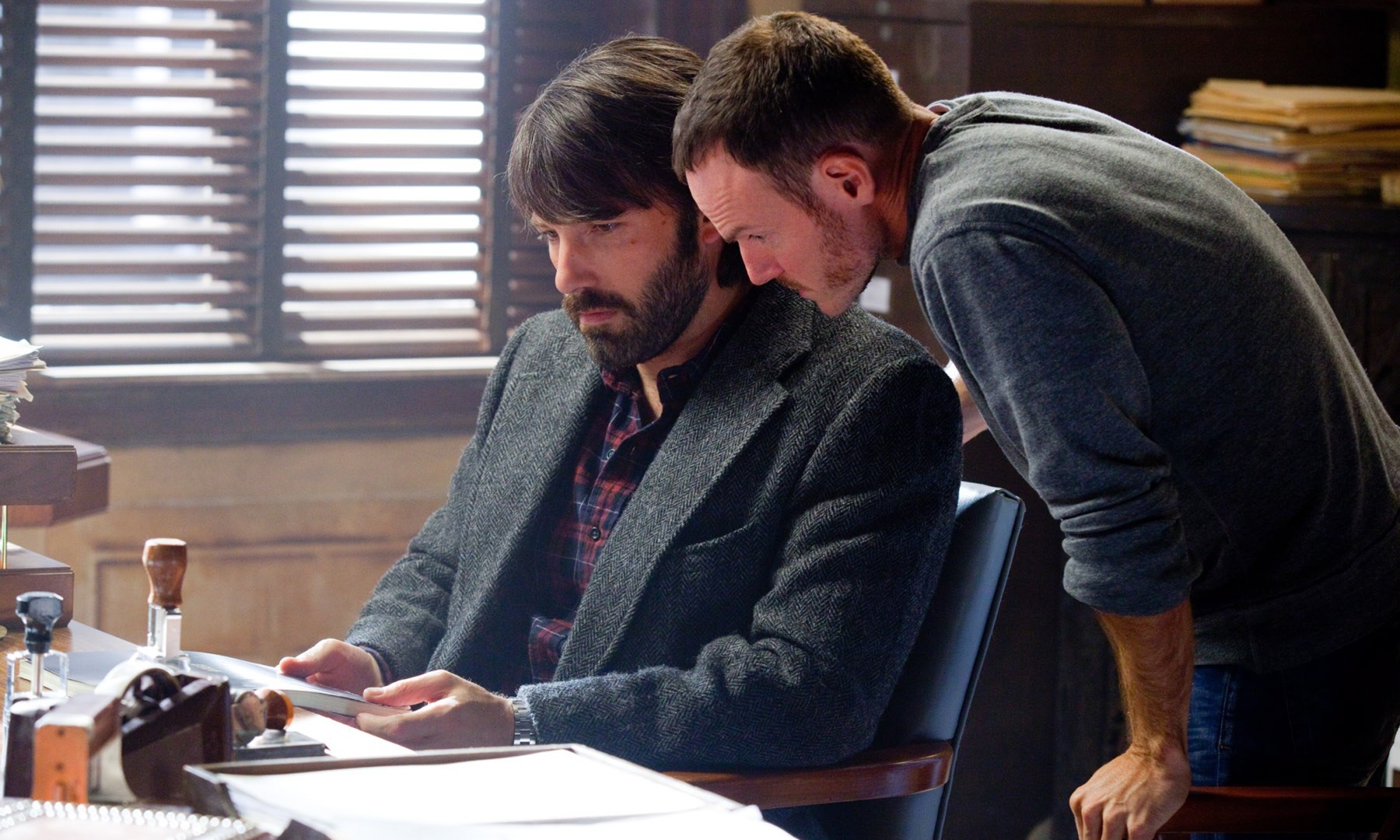This article appeared in the Dec. 19 issue of AwardsLine.
Having a script that everyone loves doesn’t always ensure the quickest path to production. Just ask Argo producer Grant Heslov of Smokehouse Pictures. Five years ago, Heslov and producing partner George Clooney hired screenwriter Chris Terrio to turn Joshuah Bearman’s April 2007 Wired article, “The Great Escape,” into a script. The previously classified true story of the CIA’s collaboration with two Hollywood insiders in setting up a fake production company and turning six trapped diplomats into a fake film crew as a way to smuggle them out of Iran was a riveting read in first-draft script form. Nevertheless, scheduling proved an issue for years until the script made its way through Warner Bros. to Ben Affleck, who was eager to make Argo his next project. With the boxoffice hit and festival-circuit favorite firmly entrenched in the awards conversation, Heslov took time from the set of his next project, August: Osage County, to talk about arriving at the right budget number and why Smokehouse is always involved in the marketing of its films.
AWARDSLINE: It took Argo about five years to make it to the screen. Was it just a matter of scheduling for you or were there other roadblocks that were holding things up?
GRANT HESLOV: We found it about five years ago, and we developed it, and it was one of a few films that we had that we felt were ready to go. But George (Clooney) and I just hadn’t had time to get it made or figure out what we were going to do with it. When we were shooting The Ides of March, we heard that Ben (Affleck) was interested, so we got together with him, and that’s how that ball started rolling.
AWARDSLINE: How concerned were you about dramatizing some of the real events in order to make them work for a film?
HESLOV: You know, we weren’t. George and I have done a bunch of films that are based on the truth, and (for) this one, we felt like as long as we stayed within the spirit of the story, the things we did to add drama—and there aren’t that many, when you really look at it—we didn’t have any problem with that.
AWARDSLINE: There’s always haggling with the studio and the director over what that budget number is going to be. Do you go in with a number that you know you can’t go under and have the film still work? How does that process work for you?
HESLOV: We know how much we can make the movie for, have a gut feeling. (But) it’s not just how much do you think you can make the movie for but how much do you think the movie can make. There’s a lot that goes into it, and we’re not cavalier about it, we really think. For instance, a film like Good Night and Good Luck, you make that for $7 million because you know it’s a black-and-white film, and it’s not an easy sell. If you make it for $7 million, then everybody can have a chance to make a little bit of money, and you get to make the film you want to make. But on a film like Argo—it’s period, there’s a lot of locations, and there’s a big cast. You have a gut feeling about the number and you go, “Look, we know we can’t make it for anything less than this, and if we can make it for more than this, then that would be great.” Then getting to the haggling with the studio over what the number is, it’s never as much as you want, but they usually come up a little, and you go down a little, and find someplace in the middle.
AWARDSLINE: How involved are you as a production company in marketing the films that Smokehouse produces?
HESLOV: We’re incredibly involved. If you asked the studio, they’d probably say we’re too involved. But look, George has been involved in the release of tons and tons of movies. Even when he’s an actor in the film, he still has to sign off on everything. So he has years of experience, and I’ve learned from him that you just have to be on top of all the marketing stuff. We have very strong opinions about the way that the films that we work on are sold. The studios, as they should, want to extract every dollar out of that opening weekend. But at the same time, for us (a film) is what lives on with us forever, as a one-sheet on our wall, as part of a legacy that we’re trying to put together. You want to have stuff that you feel good about in the way the film was marketed, and you also want to make sure that you’re selling the film that people are actually going to want to go see, because that can backfire on you. We’re very involved.
AWARDSLINE: Did you think that Argo would be tough to market?
HESLOV: Yes. It’s got an odd title, and it’s a very hard film to sell. On one hand, it’s a real nail-biter thriller and on the other hand, there’s a lot of comedic moments in it, but it’s not a comedy. If you sell it as a comedy, people are going to be disappointed. So it was tricky, but the studio did a great job. We’re really happy with what they did with it.
AWARDSLINE: Is it tough to balance the rigors of promoting a film while you’re on location with a high-profile film like August: Osage County?
HESLOV: It’s not really hard… We premiered at the London Film Festival, and we couldn’t be a part of that because we couldn’t leave. There were certain screenings that I wish George and I could have been at. You know, you make a movie and you’re proud of it, and you want to share those moments with your collaborators. But in terms of the actual work that has to be done, everything I do is practically on the phone anyway, so not so bad. (Laughs.)


